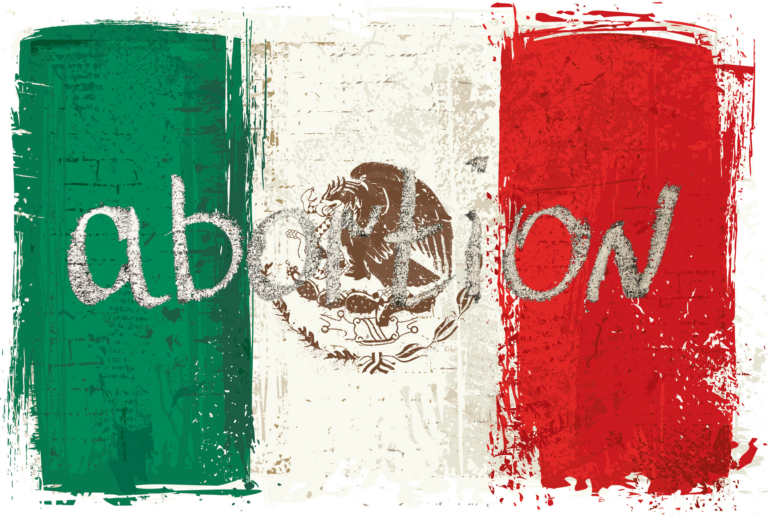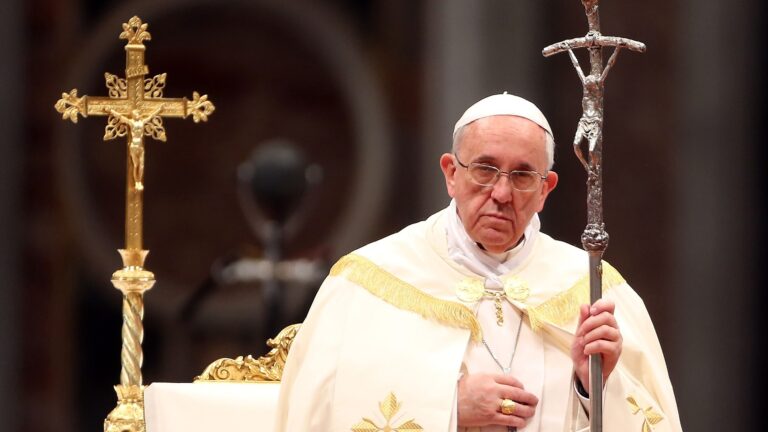PRI’s international conference, Human Rights in China: 50 Years Later, brought together leading experts on China and human rights, China’s chief dissidents, and members of the US Congress for two days of discussions on the deteriorating situation in the People’s Republic of China. The conference, sponsored by the Bradley Foundation, included presentations on China’s one-child policy, the persecution of Catholics, Evangelicals, and other religious groups in China, the plight of Tibetans and other minority groups. and the difficulties of organizing workers, not to mention political parties, in a country where there is no freedom of speech, assembly, and the press, Held at the Capital Hilton in Washington, DC, the November 19–20 event attracted more than 25 journalists from national media, including CNN, C-SPAN, CBN; and international media including the Beijing Daily, China Youth Daily, Agence France Press, and Associated Press TV, who aired conference coverage throughout the world.
The only no-show was the Chinese ambassador, who had been invited to defend his country’s human rights record, “I hope you can understand that no Chinese diplomat can allow himself to sink so low as to sit with the convicted criminals of his own country,” Minister Counselor He Yafei wrote to PRI from the Chinese embassy in Washington. “I would also like to express my doubt that your conference can reach a factual conclusion on China’s human rights situation if it is strongly influenced by the views of these criminals [italics added].”
“Criminal is a strong word,” responded Mosher at a press conference held on the first day of the conference. “History will decide who in China has committed criminal acts. Democratic activist Wei Jingsheng, whose only offense was calling for democracy, or those who unlawfully imprisoned him fir 20 years? Chinese students like Shengde Lian and Shen Tong who peacefully demonstrated at Tiananmen, or those in power in Beijing who ordered the butchery that followed? The members of the Falun Gong, or Communist Party leader Jiang Zemin who ordered the brutal suppression of this peaceful Buddhist group that is now occurring in China?”
China’s One-Child Policy
Congressman Christopher Smith (R-NJ) introduced Mosher as the one who broke the story of China’s one-child policy to the Western media. ‘“I got elected in 1981,” said Smith, “and it was early in the 1980s when those of us in Congress began to hear about this absolutely horrific one-child per couple policy, where brothers and sisters were declared illegal, and forced abortion and sterilization was becoming commonplace; where high tides of missing women and bringing them down to the local population control office was breaking out into the news. Well, Steve Mosher broke that story.
“I’d like to begin by strongly thanking Steve Mosher for his decades of work on behalf of the Chinese people. Steve has been tracking the one-child policy since its inception in the early eighties. The information, the credibility, the scholarship that he has applied to the issue of human rights in China, and the attention to detail has given us the willingness to say that the abuses in China are real. So when PRI says something with regard to human rights abuses, Congress needs to listen.
“Amazingly, the international ‘experts’, especially the UNFPA, are in sympathy with the Chinese government, and have been able to run interference for the Chinese government for many years. Steve’s information has disproved that China’s one-child policy is voluntary. Yet even now, UNFPA provides cover for China's one-child policy,”
In his talk. “Is the One-Child Policy Coming to an End,” Mosher recounted how the UNFPA lost its US funding in October 1998 because, in violation of a promise to Congress, it had resumed its collaboration with the Chinese government. To mitigate congressional anger at its duplicity, the UNFPA then began a media campaign to try to convince the world that China’s one-child policy was over. According to Mosher, “They did not reckon on word of this campaign getting back to China. But it did, and on 13 October, Chinese Premier Zhu Rongji thought it necessary to correct the record. ‘China will continue to enforce its effective family planning policy in the new century said Premier Zhu, stressing that China would continue to make ‘family planning a fundamental state policy.”
So, is China’s one-child policy coming to an end, as the United Nations Population Fund (UNFPA) asserts? Not at all, responded Mosher. “The Chinese government has made it clear that the one-child policy will be continued into the foreseeable future.”
What does China mean when it claims that its one-child policy is voluntary? “There are cases in China where brute force is used to perform abortion and sterilization,” Mosher remarked. “But more commonly, the Chinese government abides by its own Orwelian definition of voluntary, which is to say that you can fine the woman; you can lock her up; you can subject her to morning-to-night brainwashing sessions; you can cut off the electricity to her house; you can fire her from her job; you can fire her husband from his job, and you can fire her parents from their jobs. All of' this psychological mauling, sleep-deprivation, arrest and grueling mistreatment is inflicted upon these women in order to break their will to resist. As long as the pregnant women walk the last few steps to the local medical clinic under their own power, then the abortions that follow are said by the government to be ‘voluntary.'”
Moreover, Mosher said, the Chinese government has failed to consider the social consequences of its policy of so-called family planning. “In enforcing a one-child policy, the Chinese government has put the Chinese people in a position of having to reject their daughters in their desire to have sons. It has put parents in the position of having to choose between a son, who will support them in old age, or having a daughter who will go to live with her husband’s family upon marriage. The result is that little girls have to run a gauntlet from conception through birth. Many of them do not survive that gauntlet.”
The first part of that gauntlet is sex-selective abortion, Mosher said. The second part is female infanticide. “Reports throughout the length and breadth of China reveal that little girls are dying shortly after birth in mysterious circumstances.” Now there is a shortage of 30 million brides in China.
China's communist government is trying to reduce not just its population growth, but its overall population, confirmed a reporter from the Beijing Daily. China's national newspaper, He admitted that the state desired to have complete regulatory power over population and demographics through control of reproduction. The short-term challenge is how to bring China’s population into a state of decline; the long-term challenge is how to “deal with” China’s aging population. “If more people are needed.” this reporter said offhandedly, “we will raise the birth rate.”
“China’s ‘family-planning’ policy is particularly effective against minority populations,” Mosher continued, “in accord with China’s 1987 eugenics law which reflects a desire to ‘breed a better Chinese man, and a better Chinese woman.’ The state is targeting minorities such as the Uyghur people of China in order to depress their birthrates below replacement. In a few generations, a declining Uyghur people will cease to be a threat to China’s ‘territorial integrity.’”
Cleansing Minorities
One of the most sorrowful tales of Chinese mistreatment of minorities revealed at the conference concerns the Uyghur (pronounced WHEE-ger) a Turkish-speaking minority of 7 millions living in central Asia. Uyghur Representative Adil Ahmat, who was a student activist in China from 1985–1989, told of how the communist government in China is trying to systematically eliminate the Uyghur population from the “cradle of Uyghur civilization” in Eastern Turkistan (China’s Xinjiang province). The persecution consists of a variety of tactics including random executions, population control and demographic warfare.
In order to permanently alter the ethnic mix of the predominantly Moslem region of Eastern Turkistan, millions of ethnic Chinese “settlers” have been relocated into the region. Before 1949, Ahmat said, a mere 300 thousand ethnic Chinese called the province home. Now more than six million do, and their number is increasing at the rate of seven thousand per day. Published reports have indicated Beijing wishes to settle an additional five million ethnic Chinese in the region by the end of the Year 2000. Several hundred thousand of these settlers are violent criminals who were sent by the government to labor camps in the region and then released. “They are allowed to settle in the Uyghur region where they prey on Uyghur men and women, who cannot get adequate protection from the pol ice,” said Mr. Ahmat.
Today the Uyghur minority is being systematically persecuted by so-called legal means, Ahmat said, with “the notorious Chinese one-child policy” aggressively implemented so that Uyghur numbers are “coercively reduced… ‘Unauthorized’ children can be denied residency, food, health care and schooling, and stiff fines are imposed on parents. The government reported that it has fulfilled state quotas in a Uyghur’s town of 200,000; of the 35,000 child-bearing women, 993 suffered forced abortion, and 10,708 were forced to undergo sterilization. In order to fulfill quotas, Chinese doctors are often forced to kill newborn minority babies. In another town of 100,000, only 1,000 women were allowed to give birth to their children. The rest were forcibly aborted.
“Underpinning China’s birth-control policy against the Uyghurs is the ideological and nationalistic concept that minorities are racially inferior to the Chinese. Since 1988, China’s birth-control policy has been particularly directed at minorities such as the Uyghur, Tibetans and Mongolians. A Uyghur sterilization program was put into effect in 1994 as part of China’s 5 year plan of action… to eliminate the Uyghur population, which is currently a mere 0.7% of the total Chinese population, The overall aim is to ‘“legally” eliminate the Uyghur population through ‘“any and all political, social and economic means.”
Forms of torture not being used elsewhere in China but inflicted upon Uyghur, said Ahmat, include “injections of unidentified chemicals that cause the victims to become mentally unbalanced or to lose the ability to speak coherently, the insertion of pepper, chili powder…in the mouth, nose and [reproductive] organs.” Ahmat also cited instances of forced confession and executions, in violation of UN Declaration of Human Rights that China has signed on to.
In addition, tests for China's growing nuclear arsenal have been conducted in the Uyghur homeland over the past 30 years. 210,000 Uyghurs have died as the result of nuclear radioactive fallout from 46 nuclear tests in Eastern Turkistan over the years, Ahmat said. Nuclear testing continues, but no medical testing has ever been carried out.
Persecuting Believers
The looming congressional fight over whether to approve the WTO deal took on additional importance at PRI’s conference in light of the number of presenters who agreed that China’s attitude toward Christians and other believers has only hardened in recent years. The conference heard from representatives of a variety of China’s ethnic and religious minorities who all told of how difficult their struggle to merely survive in China has become.
Joseph Kung. President of the Cardinal Kung Foundation, which tracks and supports the underground Catholic Church in China, told the conference that the Chinese government's persecution of the underground Chinese Roman Catholic Church has intensified in the last four years. Specific examples include the use of 5,000 soldiers with armored ears and helicopters, in 1996, to seal off and destroy a shrine to the Virgin Mary, which was in a little village of Dong Lu in 1996. Chinese Catholics have not been allowed to rebuild the shrine or otherwise mark the spot where it stood, Kung said.
Last May, a priest on his way to offer a private Mass in Beijing never made it. His body was found in Beijing that evening. Although there were no witnesses or autopsy, the consensus among Chinese underground Catholics is that Father Yan Weiping, aged 33, was killed and then pushed from a window to make his death appear to be an accident or suicide, Kung said. Similar “accidents” and false arrests abound as Chinese officials step-up their systematic persecution against the Roman Catholic Church in China.
Kung urged all Americans who have a "heart” for the suffering of the underground Chinese Church to work continually to raise awareness about the persecution and to contact their Congressional representatives to vote against normalizing trade relations with China unless Beijing stops the persecution.
America’s political leaders should remember that “a wolf is always a wolf,” Kung said. “Twenty years of ‘cooperation’ between America and China in financial and technical assistance has done nothing to improve human rights in China. How long must we wait?”
American Democracy
China’s leading democrat, a man jailed by China’s communist government for two decades for advocating democracy in China, now says America needs more democracy. Wei Jingsheng’s remarks were made in reference to the World Trade Organization (WTO) bilateral trade agreement that was recently signed between Chinese Premier Zhu Rongji and the Clinton Administration.
Scholars throughout America, Europe and China “have concluded that the WTO agreement does not represent American interests,” said Wei Jingsheng. "If the White House believes it can make this decision independently without consulting with Congress, that’s exactly the opposite of the way things proceed. If it was felt to the American Congress to decide whether or not to sign the WTO agreements it never would have happened.”
Only weeks after Communist Party leader Jiang Zemin told his Central Military Commission “to be prepared for war with America…the President decides to give China a piece of candy,” Wei continued. “And it seems like they’ve also decided to tack on to this gift of permanent MFN (Most Favored Nation) status. I’m afraid that this is something that we simply cannot have happen …Those concerned about human rights and democracy in China view this agreement as a catastrophe.”
Opposition to WTO
The bilateral trade agreement that the Clinton Administration signed with the People’s Republic of China (PRC) on November 15 is liable to be a disaster, especially for faithful Chinese Catholics and other religious minorities, according to Chinese dissidents and other experts who spoke at the conference. But Nina Shea, long-time director of the Center for Religious Freedom, an adjunct of Freedom House, lamented that opponents “probably do not have the political clout” to prevent Congress from normalizing China’s trade relations with the US permanently in the wake of the recently signed agreement.
Currently, Congress has to renew Normal Trade Relations (formerly Most-Favored Nation) status with China each spring. But congressional approval of the bilateral trade deal would mean China’s trade with the US would be permanently “normalized.” Congressional approval for the US-China trade deal would also pave the way for China’s entry into the World Trade Organization (WTO), although that will take the approval of the other 139 WTO nations as well.
The annual fight over renewing normalized trade relations has traditionally given the US one of its only points to exert pressure on the PRC for human rights reforms, even though the Clinton Administration has been unwilling to link trade and human rights since 1993, Shea pointed to repeated failures to muster congressional opposition to renewed normal trade relations (NTR) for even one year as a source for her skepticism of opponents’ abilities to lobby down a permanent trade deal, The light over normalizing trade relations permanently is widely expected to draw more political pressure and money than the annual light.
Shea suggested that human and religious rights advocates focus on opposing China “where it hurts,” by exerting pressure to keep Chinese state-owned companies from using US financial markets to capitalize expansion.
An example, said William L. Saunders, Human Rights Counsel at the Family Research Council, is China’s National Petroleum Corporation (CNPC), which is expected to seek up to US $10 billion by publicly offering stock in a subsidiary on the New York stock exchange. That CNPC is seeking to raise money on US exchanges is particularly outrageous given the company is backing 40% of a controversial oil pipeline in Sudan. Saunders said that the pipeline revenues will allow the Islamic Sudanese government to further its war to conquer and enslave Christians and other religious minorities in the southern part of that country.
The “bottom line,” said Saunders, is that China, which is “violating human rights at home, cooperates abroad with the government engaged in some of the worst human rights abuses in the world, Sudan. China's lack of respect for domestic human rights is not irrelevant to its behavior around the world. As Wei Jingsheng says, China is a dictatorship, and will only support other dictatorships abroad.” Citing the US Committee tor Refugees Report in December 1998, Saunders, who has written extensively on the subject, said that the Sudanese regime, with the help of the Chinese government, is “involved in a genocide, as defined under international law, against the African, non-Muslims of the country. It bombs civilians, encourages slavery, uses bod as a weapon, which has resulted in 2 million dead in 10 years.”










